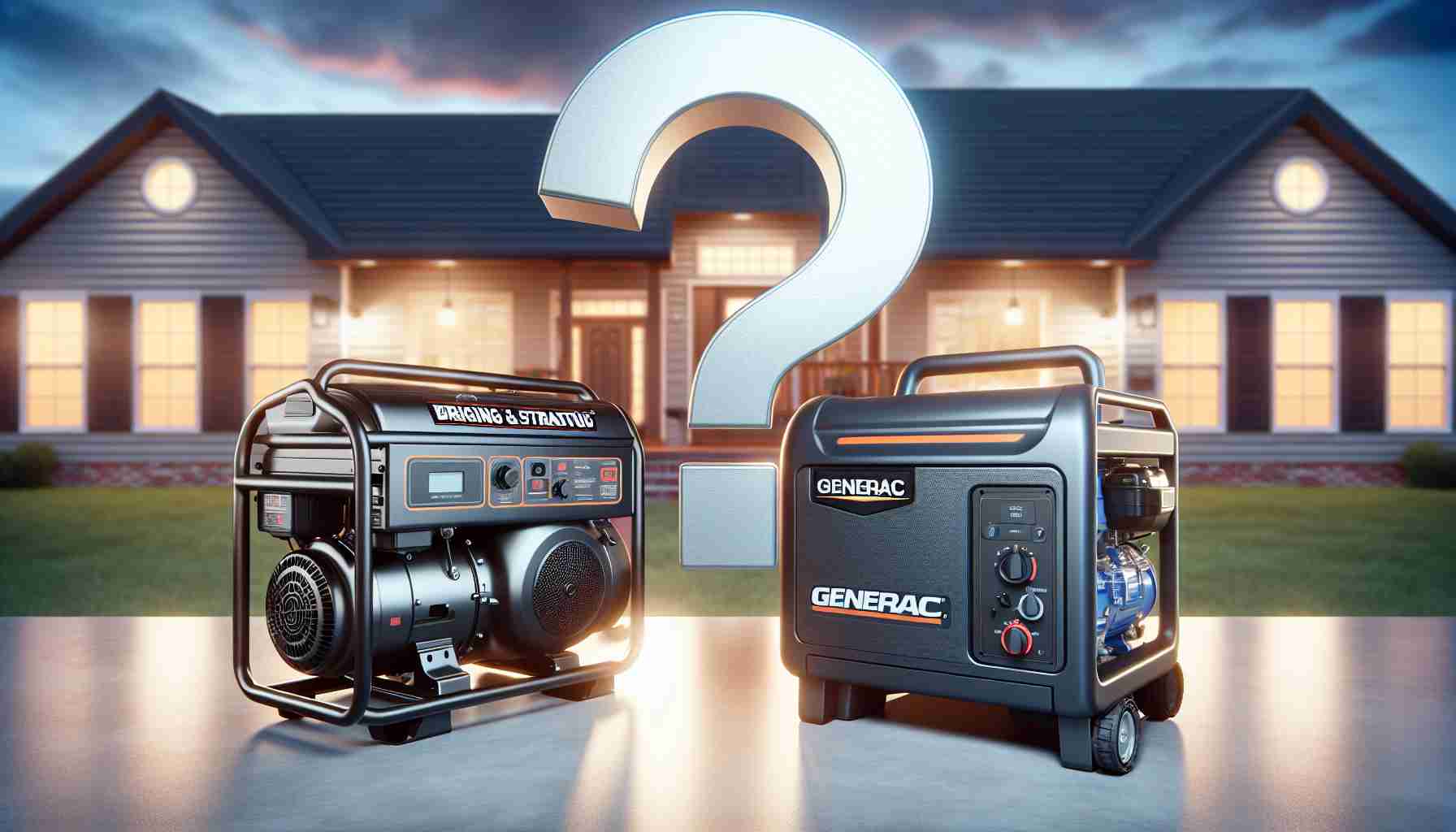When it comes to reliable power generation, two names often surface: Briggs & Stratton and Generac. Each brand has carved out its niche in the market, but which one truly stands out in terms of performance, reliability, and overall value? In this article, we will explore various aspects of both companies and their product offerings to help you make an informed decision for your power needs.
Company Overview
Briggs & Stratton, established in 1908, has a long-standing reputation in the small engine manufacturing sector, including lawn mowers and outdoor power equipment. The company has expanded its portfolio to include generators, offering both portable and standby power solutions. Briggs & Stratton is known for its strong focus on engineering innovation, durability, and consumer-friendly products.
On the other hand, Generac, founded in 1959, has gained a significant foothold in the generator market, particularly in standby and backup power systems for residential and commercial use. Generac is widely recognized as a leader in home standby generators, providing customers with reliable solutions during power outages. The company emphasizes ease of installation and user-friendly features, appealing to homeowners looking for seamless backup power.
Product Range and Features
When comparing product ranges, both Briggs & Stratton and Generac offer a variety of generators suited for different needs. Briggs & Stratton provides a selection of portable generators, which come in various wattages, ideal for recreational use or temporary power supply. Their standby generators are also available, but the focus is primarily on smaller units.
Generac, however, has positioned itself as the go-to brand for home standby generators. Their offerings include a range of systems that are automatically activated during a power outage, ensuring that homes are powered without any user intervention. Generac’s generators frequently come equipped with features like mobile apps for remote monitoring, Wi-Fi connectivity, and a user-friendly interface, which enhance the overall experience.
Performance and Reliability
When it comes to performance, Generac tends to dominate the standby generator segment, often praised for their reliability during extended power outages. Generac generators are designed to run on natural gas or propane, providing an uninterrupted power supply without the need for constant refueling. Users frequently report high satisfaction with the performance and longevity of their Generac units.
Briggs & Stratton generators, while reliable, are occasionally noted for having shorter run times when it comes to portable units. The performance largely depends on the specific model and engine type. However, they are still regarded as durable and efficient, particularly for smaller applications.
Warranty and Customer Support
Both companies offer warranties that can significantly impact consumer choice. Briggs & Stratton typically provides a 2-3 year limited warranty on their portable generators, whereas their standby generators come with a longer warranty, reflecting confidence in the product’s longevity.
Generac offers a 5-year warranty for their standby generators, which is indicative of their standing in the market. Their customer support is also robust, with an extensive network of authorized dealers and service centers, ensuring that customers have access to assistance when needed.
Price and Value
Price is always a significant factor when choosing a generator. Generally, Generac’s standby generators come at a premium price point but are often seen as a worthwhile investment for homeowners seeking reliable backup power. The features and reliability they offer tend to justify the cost for many users.
Briggs & Stratton’s portable generators typically have a lower entry price, making them accessible for casual users needing temporary power sources. However, for those seeking a long-term standby solution, Generac might provide better overall value despite the higher initial cost.
Conclusion
In the battle of Briggs & Stratton vs. Generac, the choice ultimately depends on your specific needs. If you’re looking for a dependable home standby generator that automatically powers your home during outages, Generac stands out as a leader in the market. Conversely, if you need a versatile and budget-friendly portable option for recreational activities or occasional power backup, Briggs & Stratton is a solid choice.
Consider your power needs, budget, and the features that are most important to you when making your decision. Regardless of the choice, both brands offer reliable products that have served many customers well over the years.
Power Up Your Life: Tips and Hacks for Generator Users
When it comes to power generation, having reliable equipment is only part of the equation. To ensure that you get the most out of your generator, there are numerous tips, life hacks, and interesting facts that can enhance your experience. Here are some valuable insights to consider.
1. Regular Maintenance is Key
Just like any other machine, generators require regular maintenance to function optimally. This includes changing the oil regularly, replacing air filters, and checking spark plugs. Schedule maintenance checks, especially before the storm season, to ensure your generator is ready when you need it most.
2. Store Fuel Properly
When storing fuel for your generator, use a suitable container and avoid filling it to the brim to allow for expansion. Additionally, add a fuel stabilizer to prevent degradation. Remember that gasoline can lose its effectiveness over time, so try to use fresh fuel and replace it every two to three months.
3. Keep it Clean and Dry
After using your generator, clean it thoroughly to remove any dirt or debris that may have accumulated. Moist environments can promote rust, so always store your generator in a dry place when not in use. This will help prolong its lifespan and maintain performance.
4. Invest in Quality Accessories
Using good-quality extension cords and transfer switches can make a big difference in your generator’s effectiveness and safety. Ensure that your cords are rated for the wattage of your generator and that you are using GFCI protection for outdoor use.
5. Practice Safe Usage
Always operate your generator outdoors in a well-ventilated area to avoid carbon monoxide poisoning. When running your generator, keep it at least 20 feet away from your home and away from doors and windows.
6. Utilize Mobile Apps for Monitoring
For brands like Generac that offer mobile app capabilities, take advantage of technology to monitor your generator’s performance. This allows you to receive alerts about maintenance needs and runtime, ensuring you never get caught off-guard during an outage.
7. Prepare for Outages Ahead of Time
Create a power outage kit that includes essentials such as flashlights, extra batteries, non-perishable food, and bottled water. Having this kit ready will save time and stress during an actual emergency.
Interesting Fact: The Evolution of Generators
Did you know that the first portable generator was invented in 1831 by Michael Faraday? While Faraday’s invention was rudimentary compared to modern generators, it laid the groundwork for advancements in electrical engineering. Today’s generators incorporate high-tech features to improve efficiency and usability.
Resourceful Links
For more information and tips related to power generation, visit Briggs & Stratton and Generac. Whether you’re looking for maintenance guides or new generator options, these sites offer comprehensive resources to help you make informed decisions.
By integrating these tips and hacks into your generator strategy, you can enhance the reliability and performance of your power solutions, ensuring you’re always prepared for any situation!























